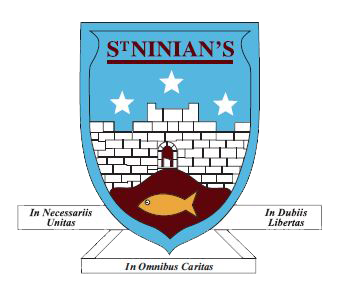Pupils primarily have language and communication needs and may have difficulties with organisation, motor planning and literacy and numeracy. The provision is based on a model of social inclusion with pupils integrating into the community of St Ninian’s.
Depending on need, pupils will follow an individualised timetable with both mainstream and ELR blocks timetabled. Support is provided in mainstream classes where appropriate and is reviewed regularly. Timetabled blocks in the ELR allow targeted support for pupils as well as providing an opportunity to work in a small group setting with a focus on developing self-confidence, emotional wellbeing, and skills for life, learning and work.
There is a strong focus on health and wellbeing and ELR staff work closely with all staff across the school community to support the pupils in meeting their needs. ELR staff work collaboratively with a variety of other agencies with additional support from educational psychology, speech and language therapy and other appropriate services if required.
The aims of the Enhanced Learning Resource are:
- To provide a learning environment that will support students to develop the skills to successfully and confidently access a mainstream curriculum whilst developing skills for learning, life and work.
- To ensure that learning needs are addressed through targeted support as detailed within an action plan. The action plan is monitored and reviewed regularly in consultation with pupils, parents/carers, staff, and other professionals as required.
- To support the inclusion of students in subjects across the school, and to develop relationships within the school with peers and staff.
- To encourage and support the participation in the full life of the school including taking part in extra-curricular clubs, school excursions and residential trips.
- To fully involve students, parents/carers in decisions about their own learning and the levels of support that will be required for them to achieve their targets.
To work collaboratively with staff from across the school community; agencies such as educational psychology and speech and language therapy; health professionals; colleges and specialist training providers; work placement providers; the local area coordinators; outdoor education providers and any other partners that will support the young people.
